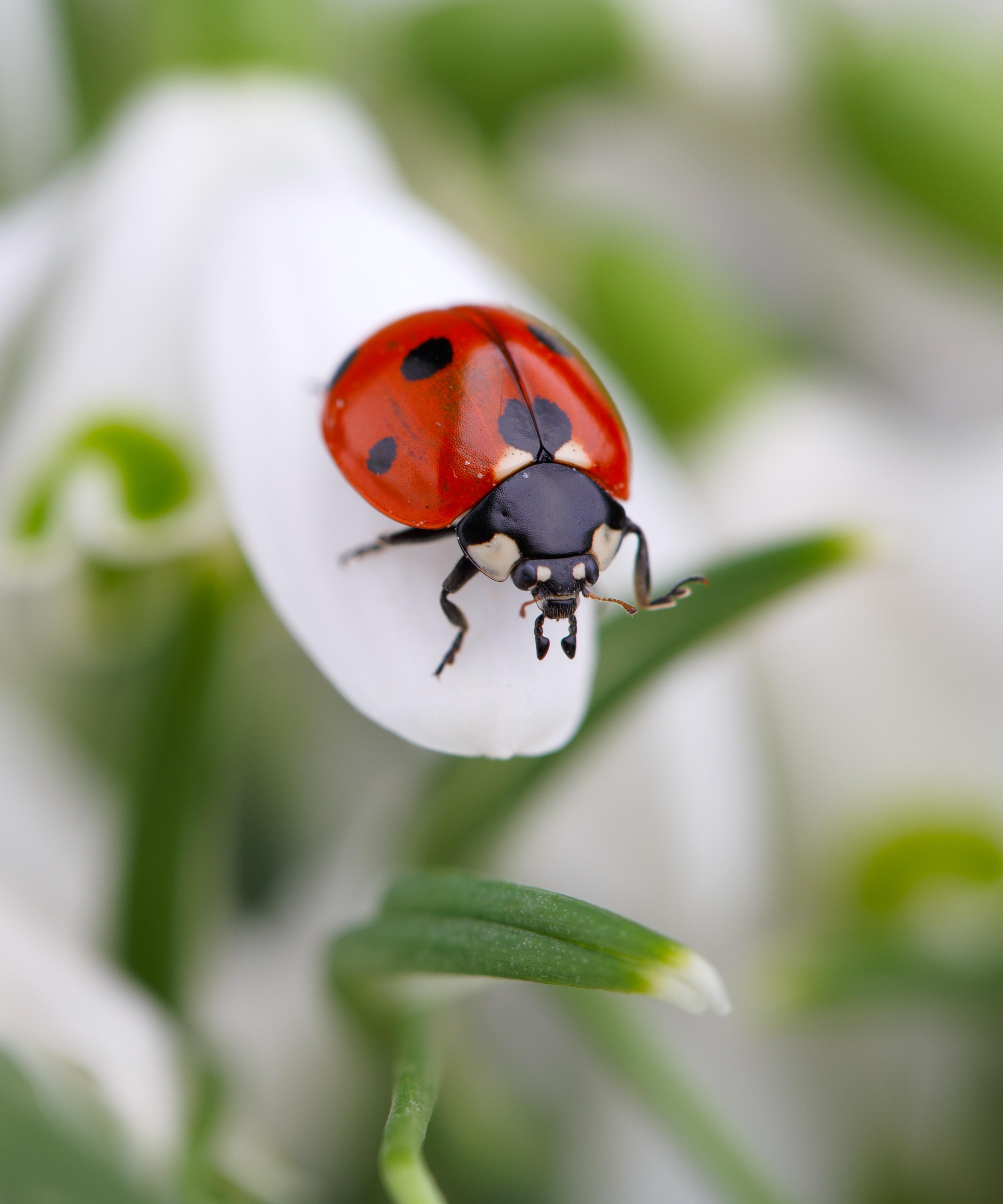How to repel ladybugs – 5 tried-and-tested tricks to avoid an infestation
With a sudden uptick in ladybug infestations, you’ll need these tricks to repel them and protect your home


After a sudden uptick in ladybug infestations, it is prudent to know how to repel ladybugs to keep your home free from invasion.
Prevention is always better than cure, and while you can get rid of ladybugs in your house fairly easily, it is far simpler to prevent ladybugs from getting in in the first place.
These are five ways to repel ladybugs to save your home from infestation.
How to repel Ladybugs
Ladybugs are incredibly beneficial bugs that can help to get rid of aphids in your yard. Too many of them can become overwhelming, even if they are not particularly dangerous to our health. Here’s how to keep them outside where they are most useful.

1. Seal possible entry points
A common pest control mistake is neglecting to seal off entry points and hoping that other repellents will do the brunt of the work. When preventing ladybugs, Lorne Hanewich, pest control expert and trainer at Anticimex Carolinas pest control, suggests starting with this tedious but essential task:
‘The first step in ladybug prevention is to seal all potential entry points in your home.
‘Perform a “light-leak” test. At night, close all exterior doors, turn off exterior lights, and turn on interior lights. Go outside and see if there is any light “leaking” out from cracks and crevices. Where light leaks out, pests can get in. Use caulk or weather stripping to close off these openings and prevent them from infiltrating your living space.’
2. Consider eco-friendly approaches first
Ladybugs are not dangerous pests, so you can often lean into the eco-friendly repellent options first, unlike when you are getting rid of springtail bugs or getting rid of wasps.
Nicole Carpenter, CEO at Black Pest Prevention urges you to consider citronella or citrus oils, as well as spices like cloves and bay leaves, all of which have scents that repel these insects.
‘Planting lavender or mums around your house is another effective choice, as it not only deters bugs but also enhances your garden's appearance.
‘If you're looking for a straightforward solution and don't mind making a purchase, diatomaceous earth is an option. This soft sedimentary earth, a type of silica used as a natural pesticide, causes ladybugs to desiccate and perish.’
Citronella Oil | $9.99 at Amazon
This citronella essential oil is perfect for protecting your home from a variety of pests including ladybugs and flies.

Nicole Carpenter started working at Black Pest Prevention when she was in high school. She continued working there while attending N.C. State University and eventually became the CEO. Black Pest Prevention is a company that helps with pest control in Charlotte and serves both North and South Carolina.
3. Use chemicals if you are concerned
If you are worried about a serious infestation – if you have seen ladybugs in large numbers in your yard, for instance, then you might want to turn to chemical repellents and insecticides in a worst-case scenario, pest expert Nicole Carpenter continues:
‘If you decide to use chemical insecticides to prevent or eliminate a ladybug infestation, take precautions to avoid health risks. To achieve optimal results, apply the product in the fall and spring.
'Spray exterior walls from the ground upward as high as possible. Additionally, apply the insecticide around exterior windows, attic vents, eaves, attic vents, ceiling tiles, siding (including under ledges), under trim edges, doors, and any other potential entry points, with a focus on the south and southwest sides of your home.'
4. Reduce exterior lighting at night
Like many pests, your outdoor lighting acts as a beacon to draw them close to your home, explains Lorne Hanewhich, pest control expert.
‘Ladybugs are attracted to light, so minimize outdoor lighting, especially near windows and doors, during the evening to avoid drawing ladybugs to your home.’
5. Consider professional assistance
If you have tried everything and you are still seeing ladybugs around your yard and windows, then it might be time to call in professional help, pest expert Lorne Hanewhich suggests. Only they can supply safe and effective methods to deal with a persistent pest problem.
FAQs
What causes a ladybug infestation?
Ladybugs are drawn inside searching for food, warmth, and shelter – especially towards the beginning of winter when they struggle to survive outside. Around this time, it is a good idea to keep windows and doors closed or use window screens to prevent them from making their way inside and continuing the life cycle.
Should I be worried about a ladybug infestation?
Ladybugs are not harmful to either your health or your home, but an indoor infestation should be dealt with regardless as they can become a nuisance and be unhygienic. It might be worth considering some eco-friendly approaches to deterring them if you notice one or two around your home, or calling an expert if they are gathering in large groups.
Unlike getting rid of carpenter ants or other destructive insects, it is better to have a kinder hand when repelling ladybugs, reminds Nicole Carpenter, pest expert. ‘However, it's essential to remember that ladybugs are harmless to humans and contribute to the elimination of other insects, especially aphids, in gardens and on trees. Therefore, it's advisable not to attempt to eradicate them from your yard, as they provide more benefits than harm.’
Sign up to the Homes & Gardens newsletter
Design expertise in your inbox – from inspiring decorating ideas and beautiful celebrity homes to practical gardening advice and shopping round-ups.

Chiana has been at Homes & Gardens for two years and is our resident 'queen' of non-toxic living. She spends most of her time producing content for the Solved section of the website, helping readers get the most out of their homes through clever decluttering, cleaning, and tidying tips. She was named one of Fixr's top home improvement journalists in 2024.
-
 Kris Jenner's favorite air fryer, the Ninja Crispi, is the perfect small kitchen solution – it deserves a place on the most compact of countertops
Kris Jenner's favorite air fryer, the Ninja Crispi, is the perfect small kitchen solution – it deserves a place on the most compact of countertopsKris approves of this compact yet powerful air fryer, and so do our own kitchen appliance experts, praising it for its multifunctionality
By Hannah Ziegler Published
-
 Ina Garten's storage pantry is an insightful window into all of the best cookware used by the chef – and it's easy to recreate on your kitchen shelves from $48
Ina Garten's storage pantry is an insightful window into all of the best cookware used by the chef – and it's easy to recreate on your kitchen shelves from $48The beautiful dishware in The Barefoot Contessa's Hamptons pantry showcases the tools she uses most often to cook – this is exactly how you replicate it
By Sophie Edwards Published
